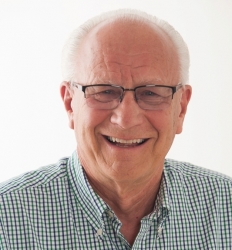It had been a terribly hard day in my small multi-grade classroom in San Marcos, Texas. The students were noisy and rude, and an angry parent had given me some harsh words.
I thought maybe I should just quit being a teacher, and face the fact that I had failed.
Then, I realized that Jesus, the Greatest Teacher, also failed. He only had 12 students. They heard his lessons every day and even lived with him, yet not one of them really understood his message while he was alive. One betrayed him, one cursed and swore that he didn’t know him, and all of them disputed about “which of them was to be regarded as the greatest”—and that was AFTER he told them he would die for them (Matthew 26:69-75; Luke 22:14-53; see also Matthew 20:17-28). And these were the guys who were supposed to lead the church!
Talk about failure!
To put it mildly, I like success. I don’t mean success eventually. I mean success right now—success I can see, smell, savor, grasp, touch, and best of all, report to the conference office or local school constituency.
Christians hear repeatedly that they ought to be like Jesus. But I don’t want to be like Jesus in some ways. I don’t want to be like the teacher who failed. I want to be greater than Jesus. I want everything I touch to be a shining success. The only problem is that my desire hasn’t come true. I am not greater than Jesus. I also fail.
However, I have discovered that apparent failure and ultimate failure are not the same thing.
I remember the first evangelistic series I ever preached. It was in Corsicana, Texas, a small town with an Adventist church of 12 aging members. I longed for young Adventists to come to the meetings to make connections with young people from the community.
I discovered there was a young Adventist student at the local community college. I visited his dorm room, prayed with him, and pled with him to attend my meetings. He never did. I failed. After that, I managed to fail at a lot of things. I turned in my ministerial credentials. Unlike Jesus, I quit. I even decided to give up Adventism and Christianity.
A couple of years later, I was driving across north-central Texas and detoured off the interstate to buy something for my wife at the grocery store in Keene, the location of an Adventist college. While going through the front door, I was stopped by a young man.
“Aren’t you George Knight?” he asked. “You visited me in my dorm room in Corsicanna. That visit was the turning point in my life. I am now studying to be a Seventh-day Adventist minister.”
I realized I had planted seeds that had germinated underground where I couldn’t see them. My problem was that I also wanted to see the seeds grow and harvest them very quickly.
I learned that even though one may plant, others water, and still others harvest. Meanwhile, the Holy Spirit is quietly working in hearts. It was the same way in Christ’s teaching ministry. By all human standards, he was an outward failure. Even though he had planted and watered, it wasn’t until after his resurrection and Pentecost that his work came to maturity.
Teachers experience the same thing.
We need to take strength from his experience, knowing that with his help, we are planting seeds for the kingdom of God. Don’t give up, even if you feel like a failure!
This blog is adapted from the article “Jesus: The Teacher Who Failed” by George R. Knight.
Note: Article written and posted in English

